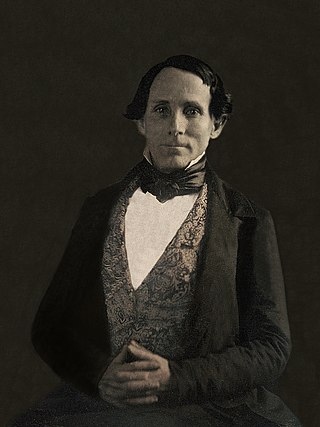
Henry Stuart Foote was a United States Senator from Mississippi and the chairman of the United States Senate Committee on Foreign Relations from 1847 to 1852. He was the Unionist Governor of Mississippi from 1852 to 1854 and an American Party supporter in California. During the American Civil War,he served in the First and Second Confederate Congresses. A practicing attorney,he published two memoirs related to the Civil War years,a book on Texas before its annexation and a postwar book on the legal profession and courts in the Southern United States.

The Commercial Appeal is a daily newspaper of Memphis,Tennessee,and its surrounding metropolitan area. It is owned by the Gannett Company;its former owner,the E. W. Scripps Company,also owned the former afternoon paper,the Memphis Press-Scimitar,which it folded in 1983. The 2016 purchase by Gannett of Journal Media Group effectively gave it control of the two major papers in western and central Tennessee,uniting the Commercial Appeal with Nashville's The Tennessean.

William Clark Falkner was a military veteran,businessman,and author in northern Mississippi. He is most notable for the influence he had on the work of his great-grandson,author William Faulkner.

Mount Olivet Cemetery is a 206-acre (83 ha) cemetery located in Nashville,Tennessee. It is located approximately two miles East of downtown Nashville,and adjacent to the Catholic Calvary Cemetery. It is open to the public during daylight hours.

Andrew Jackson Smith was a United States Army general during the American Civil War,rising to the command of a corps. He was most noted for his victory over Confederate General Stephen D. Lee at the Battle of Tupelo,Mississippi,on July 14,1864.

George Washington Gordon was a general in the Confederate States Army during the American Civil War. After the war,he practiced law in Pulaski,Tennessee,where the Ku Klux Klan was formed. He became one of the Klan's first members. In 1867,Gordon became the Klan's first Grand Dragon for the Realm of Tennessee,and wrote its "Precept," a book describing its organization,purpose,and principles. He was also a member of the United States House of Representatives for the 10th congressional district of Tennessee.

James Robinson Graves was an American Baptist preacher,publisher,evangelist,debater,author,and editor. He is most noted as the original founder of what is now the Southwestern family of companies. Graves was born in Chester,Vermont,the son of Z. C. Graves,and died in Memphis,Tennessee. His remains are interred in Elmwood Cemetery in Memphis.

The Memphis and Charleston Railroad,completed in 1857,was the first railroad in the United States to link the Atlantic Ocean with the Mississippi River. Chartered in 1846,the 311 miles (501 km) 5 ft gauge railroad ran from Memphis,Tennessee to Stevenson,Alabama through the towns of Corinth,Mississippi and Huntsville,Alabama. The portion between Memphis and LaGrange,Tennessee was originally to be part of the LaGrange and Memphis Railroad,chartered in 1838. From Stevenson,the road was connected to Chattanooga,Tennessee via the Nashville and Chattanooga Railroad. In Alabama,the railroad followed the route of the Tuscumbia,Courtland and Decatur Railroad between Tuscumbia and Decatur,the first railroad to be built west of the Appalachian Mountains.
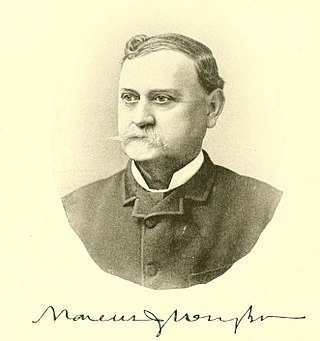
Marcus Joseph Wright was a lawyer,author,and a Confederate general in the American Civil War. He was agent for collection of Confederate records for War of the Rebellion:Official Records of the Union and Confederate Armies, a U.S. War Department publication.
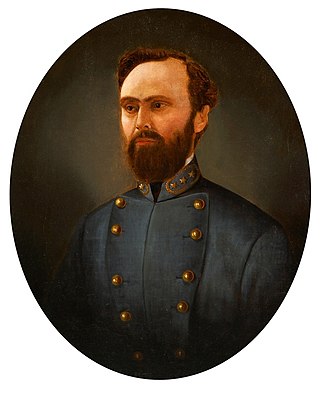
Jacob Hunter Sharp was a Mississippi lawyer,newspaperman and politician,as well as a general in the Confederate States Army during the American Civil War. He played a prominent role of several major engagements of the Army of Tennessee in the Western Theater,including the Atlanta Campaign in 1864 where he was several times recognized by his commanders and peers for bravery in combat. After the war,he also served in the Mississippi House of Representatives and was its Speaker from 1886 to 1888.

William Giles Harding was a Southern planter,attorney,and horse breeder who was made a Brigadier General in the Tennessee militia before the American Civil War. He took over operations of Belle Meade Plantation near Nashville from his father in 1839. During the course of his management,he acquired more property,expanding it from 1300 acres to 5,400 acres (22 km2) in 1860. He specialized in breeding and raising Thoroughbred horses,as well as other purebred livestock. In 1862 after Union forces took over Nashville,Harding was arrested as a leader and imprisoned at Fort Mackinac in northern Michigan on Mackinac Island for six months. He was released on a $20,000 bond. After being imprisoned at Fort Mackinac,he took the oath of allegiance to the Union and did not take an active part in the conflict from 1862 onwards.
Boyd M. Cheatham was an American politician from Springfield,Tennessee. He came from a very political family,following his father and uncle into electoral office. He served in the Tennessee State House.
The following is a timeline of the history of the city of Memphis,Tennessee,US.
Judge Robert J. Morgan (1826–1899) was an American lawyer,planter and Confederate veteran. Born and educated in Georgia,he became a lawyer in Memphis,Tennessee,and planter in adjacent Mississippi. During the American Civil War,he served as a colonel in the infantry of the Confederate States Army from 1861 to 1863,and as Adjutant-General to Lieutenant-General Leonidas Polk in 1863–1864. He served as Chancellor on the Chancery Court of Shelby County,Tennessee,from 1870 to 1878.
John Preston Young (1847–1934) was an American Confederate veteran,judge and historian.
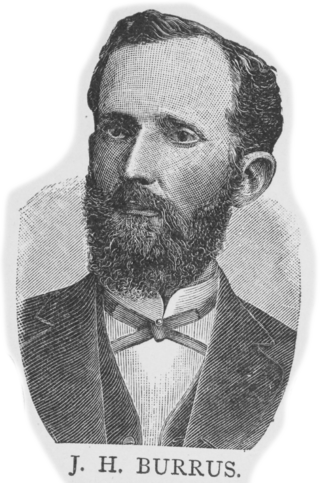
John Houston Burrus was an educator in Nashville,Tennessee and Lorman,Mississippi. He was a member of the first class of students at Fisk University in Nashville and when that class graduated became among the first group of African-Americans to graduate from a liberal arts college south of the Mason–Dixon line. He was a professor of mathematics at Fisk and in 1883 became the second president of Alcorn Agricultural and Mechanical College,a position he held until 1893.
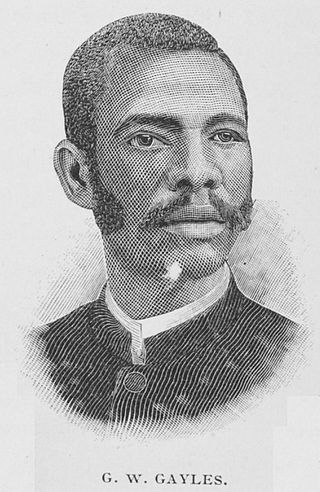
George Washington Gayles was an American Baptist minister and state legislator in Mississippi. He served in the Mississippi House of Representatives from 1872 until 1875 and in the Mississippi Senate from 1878 until 1886. He was a candidate for the United States House of Representatives in 1892,but received only 6% of the vote due to the voter suppression laws of that period. He was also a noted Baptist minister and was known as the "Father of the Convention" of African American Baptists in Mississippi.
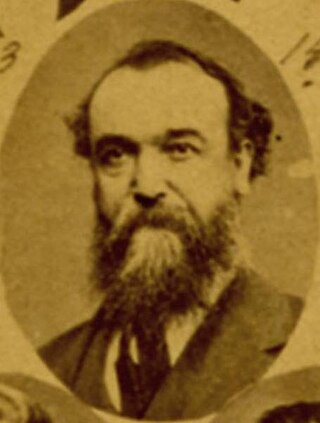
Daniel Price Porter was a Mississippi lawyer and politician,and the 25th Secretary of State of Mississippi,serving temporarily in late 1878. He was a Democrat.
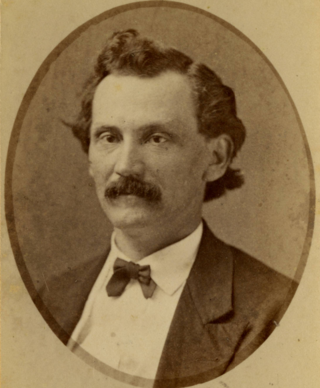
Kinloch Falconer was a newspaper editor,officer in the Confederate Army,lawyer,and the 24th Mississippi Secretary of State.















